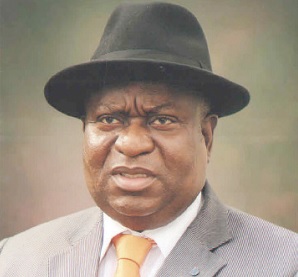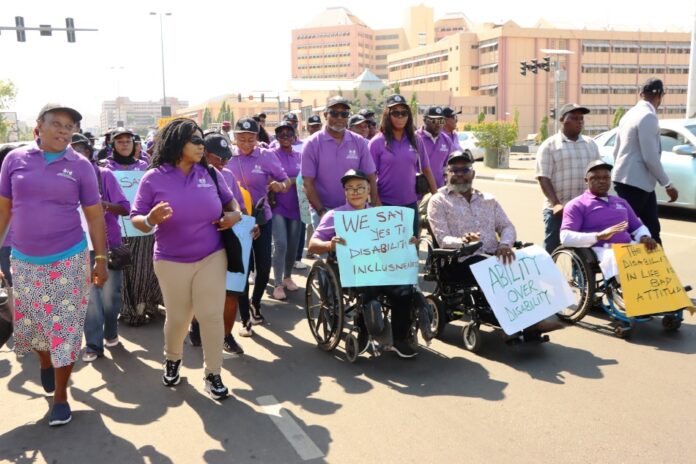Justice and accountability

By Fassy Yusuf
TUESDAY (April 20, 2021) in faraway Minneapolis, State of Minnesota, United States of America, Derek Chauvin was found guilty by a jury on all counts for the murder of an African-American, George Perry Floyd Jr. Derek is to be sentenced soon and he may earn a maximum of forty years in prison.
It is now being argued that Derek’s conviction is accountability and or justice. Opinion is divided!
Before looking into this issue, it is apposite we have a background into what has turned to become George Floyd Jr. Movement in the United States of America.
George Floyd was killed by the police on May 25, 2020 during an arrest after a store clerk alleged he (Floyd) had passed a counterfeit US$20 bill in Minneapolis, USA.
The convicted Derek Chauvin, one of four police officers who arrived on the scene to effect George’s arrest, knelt on his neck and back for nine minutes and 29 seconds, thus choking him to death.
George was heard to be saying ‘I cannot breath’ until he gave up the ghost. His murder ignited nation-wide protests that shook USA to its foundation. In the resultant milieu, we had riots, carnage, looting, social disequilibrium, and degeneration into racial violence of monumental proportion.
The conviction of the indicted police officer resonated globally with the world reacting to a verdict that revived calls for an international reckoning on racial inequality in justice systems around the world.
Nigerians stayed tuned to their television sets as foreign media outlets ran live coverage of proceedings in the court, showing how the trial resonated far beyond its national context, and highlighting the outsized role the United States of America’s racial justice conversation plays internationally.
Meanwhile, the rest of the world, especially Nigeria grapples with its own monumental ethnic issues. The ethnic issues may continue unabated and may not. This depends on the willingness of nations to take or not from lessons learnt.
George Floyd is dead, and Derek Chauvin may be in prison for a maximum of forty years. Is this justice or accountability? Your guess is as good as mine.
One way to look at justice is from the concept of ethics and law that says people behave in a way that is fair, equal and balanced for everyone. In formal term, justice is the impartial, consistent and strict application of established rules or laws.
It is a concept of moral rightness based ethics, rationality, natural law, equity and fairness, as well as the administration of the law, taking into account the inalienable and inborn rights of all human beings and citizens, the right of all people and individuals to equal protection before the law.
Michelle Maiese and Heidi Burgess discussed types of justice. There are four types of justice- distributive, procedural, retributive, and restorative justice. Like many other ethnic cases in the USA and elsewhere, attention is always focused on procedural justice.
Procedural justice is the idea of fairness in the processes that resolve disputes and allocate resources. One aspect of procedural justice is related to discussions of the administration of justice and legal proceedings.
We have seen the speed, the commitment of all parties and the machinery of justice all working expeditiously and timeously in the prosecution of Derek Chauvin. Can this be said of our country and many other African countries?
Retributive justice deals with how offenders like Chauvin will be held accountable as the police is seldom held accountable for excessive use of force.
Distributive justice is a theory of punishment that when an offender breaks the law, justice requires that they suffer in return, and that the response to a crime is proportional to the offence.
This may not be the case in totalitarian, communist and socialist countries. The police are always brutal and are hardly held accountable.
An examination of distributive justice reveals a concern for the socially just allocation of resources; often contrasted with just process, which is concerned with the administration of law, and concentrates on outcomes. Is justice evenly distributed around us? Do we have distributive justice in our clime?
On the other hand, restorative justice seeks to restore relationships to ‘rightness’. This may be difficult to achieve in our type of environment when relationships were never ‘right’.
However, we can look at restorative justice from the perspective of trying to create healthy relationships where they were absent and put in place a powerful tool for social justice. Three big ideas are involved in restorative justice.
The first issue is that of repair as crime causes harm and justice requires repairing that harm. Secondly, the idea of encounter, and the best way to determine how to do that is to have the parties decide together; and thirdly, transformation.
This can cause fundamental changes in people, relationships and communities. A case in point is the aftermath of the //endSARS riot.
We are yet to know the effect of the various panels established by many state governments. Are the panels for reconciliation and peaceful coexistence or just for awards of damages or payment of compensations for police brutality? I do not know much about the uniqueness.
While the late George Floyd Jr. and others like him cannot live together peacefully with anybody again, police in USA and other places where extra-judicial killings have occurred could engage in restorative justice with the communities the victims lived in to good effect.
The second aspect is accountability. This is the fact or condition of being accountable and responsible. Lack of accountability has corroded public respect for the police in USA and particularly in countries like Nigeria.
In many instances, the police do not experience consequences for their performance or actions. Unfortunately, without accountability, it is difficult to get the police to assume ownership of their own actions because they believe they will not face any consequences.
If Chauvin knew he would be held accountable for his action, he would not have knelt on Floyd’s back for over nine minutes.
A police organisation that follows the principles of accountability- transparency, participation or civic engagement, empathy, evaluation or assessment, feedback, etc. will always be successful and able to earn public understanding and goodwill.
Indeed, the four core components of accountability as prescribed in Alnoor Ebrahim’s article are transparency, answerability or justification, compliance, and enforcement or sanctions for shortfalls in compliance, justification or transparency.
It is imperative that every police institution must put in place an accountability structure to address the unending ethnic-motivated riots in USA. This should also apply to our country where due to illogical profiling of people, the police are now seen as ‘enemies’ rather than friends.
Indeed, the situation in some parts of the country where police formations, facilities, and personnel are now being targeted for destruction and or elimination is worrisome.
This is not the way to go. However, for every action, there is a reaction. The authorities must do a thorough soul searching and come up with a strategy to address the ugly trend.
We must institutionalise accountability in policing while justice reigns supreme.










